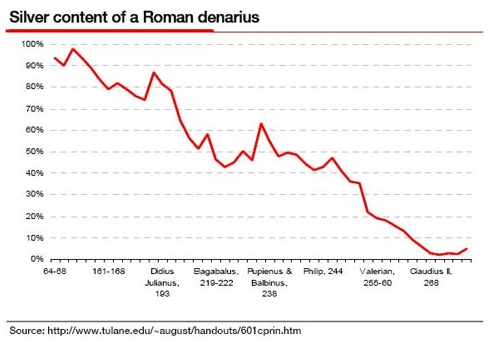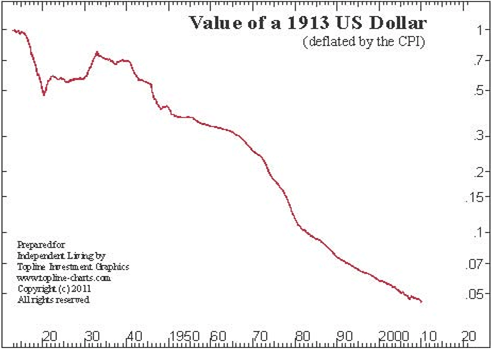(Mark here. I've known Paul Rosenberg, the CEO of virtual private network provider Cryptohippie, for many years. Paul recently re-launched his very informative "Freeman's Perspective" service, and I agreed to publish one of his articles. I hope you enjoy his writing.)
All governments – communist, capitalist, fascist, monarchy, theocracy, whatever – survive on the skim. They take money from productive people, by force or threat of force. However prettied-up or justified this fact may be, it remains the central fact of rulership.
It’s a simple but disturbing truth: A late-stage state’s modus operandi must always be “government against the people” – one that is inherently predatory. And it’s not because the participants are all sociopaths (though many are).
Free Wealth Protection Insights
Enter your email below to receive our weekly briefings on better ways to preserve your wealth, legally reduce your tax bill, and better protect what you’ve worked hard to build.
The Nestmann Group does not sell, rent or otherwise share your private details with third parties. Learn more about our privacy policy here.
PLEASE NOTE: This e-series will be delivered to you via email. You should receive your first message minutes after joining us. By signing up for this course, you’ll also start to receive our popular weekly publication, Nestmann’s Notes. If you don’t want to receive that, simply email or click the unsubscribe link found in every message.
At most times, governments try very hard to skim quietly, as with payroll taxes, where the producer's money is taken away before he or she ever holds it in their hands. That's also why tariffs were a traditional tax – the average person never saw it, and didn't feel violated.
But when governments are massively over-extended, they lose the luxury of the quiet skim and become more aggressive. This is simply what happens in long-established, monopolistic institutions, like governments: They spend wildly to make themselves look good, then find they need more money. Not willing to cut their spending, they have two choices:
- Debasement of the currency, which they always do first. But, this trick never works for very long, since people do engage their minds when conducting commerce, and they adjust their prices to counteract the debasement.
- Squeeze the producers dry, any way they can.
The Problem of Legitimacy
You may wonder why the governments don't just cut their spending. That would seem an obvious choice. But they can't cut spending without tarnishing their image as the mighty protector and the great font of human compassion. People pay taxes willingly because of this high and mighty image; lose the image and you lose tax compliance.
Think about it: the governments of the West portray themselves as the saviors of the weak, the healers of the sick, and the fixers of every problem. But if they stop paying off the poor, there will be riots, and the producers will get hurt. No longer being protected, they may no longer consent to having their money taken away from them day by day.
Governments function on legitimacy more than force. If they lose their legitimacy, they are done. Therefore they cannot cut spending.
The Philosophy of “Government against the People” at Work
Our Western civilization is at a late stage, just like Rome in the 5th century, or Greece in the 3rd and 4th centuries BC, or like the Egyptians and Sumerians before them. The same basic suite of problems engulfs them all at these stages, but we will use Rome as example, since that is the closest to us in both time and temperament.
Take a look at the two graphs below.
This one shows the Roman debasement, which involved mixing cheap metals (such as lead) into their silver coins:

Now look at this one, showing the debasement of the dollar, which involved the creation of debt-based currency:

These are, essentially, the same chart, showing the same phenomenon.
What came next for Rome was the abuse of the producers.
Rome taxed in very different ways than modern governments, so I won't take pages to describe it all, but I will give you a few highlights:
- The local elites who were charged with collecting taxes couldn't keep up with Rome's demands and started running away. Rome couldn't find anyone willing to accept these very high positions, no matter how much prestige was attached.
- People adapted to avoid taxes and Rome passed new laws in response. (This helped create the serfdom of the middle ages.)
- People ran away to the Germanic and Frankish areas that surrounded Rome. To illustrate that fact, here's a quote from a man named Salvian the Presbyter, from about 440 AD:
Thus, far and wide, they migrate either to the Goths or to the Bagaudae, or to other barbarians everywhere in power; yet they do not repent of having migrated. They prefer to live as freemen under an outward form of captivity, than as captives under the appearance of liberty. Therefore, the name of Roman citizens, at one time not only greatly valued, but dearly bought, is now repudiated and fled from, and it is almost considered not only base, but even deserving of abhorrence.
I could go on at length, but I think you get the picture. There were taxes on income, taxes on sales, arbitrary taxes, farm taxes, plain confiscations, and so on. If you had a friend close to the emperor you had a chance to be ignored, but if not, you were mercilessly bled dry. (And even a friend with the emperor's ear might not help.)
Your Choices Now
I think it's quite clear that we're in the same civilizational stage as late Rome. When happens to us won't be identical, but it will be similar. The one great advantage we have now is information. If we pay attention, we are able to see what is happening before it hits. We can also adapt to avoid most of the consequences. We may not like it that we have to adapt repetitively, but history doesn't give us many options – late stage mega-institutions will behave like late-stage mega-institutions.
And in the short term, the “Government against the People” philosophy is not going to disappear. In fact, it’s likely to get much worse. Our choice is to get out of the way, or not.
(Editor's Note. Paul Rosenberg is the “outside the Matrix” author of Freeman’s Perspective, a resource of practical insights on topics ranging from Internet privacy and economic freedom to personal development from a libertarian point of view. Receive our free updates and get a report that explains the “Government against the People” philosophy in more detail.)













